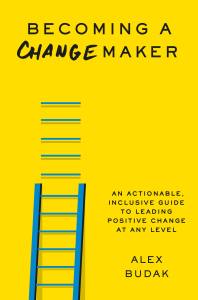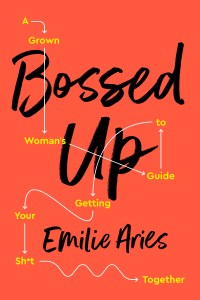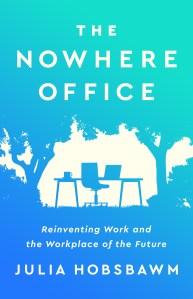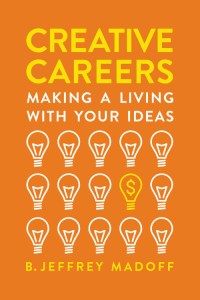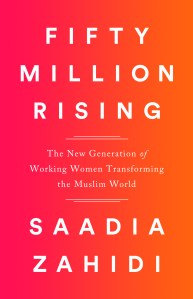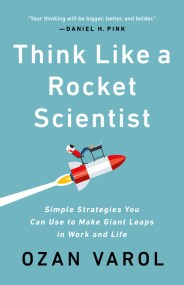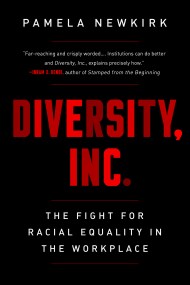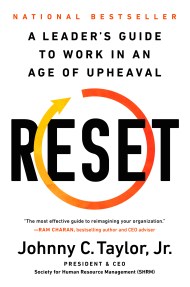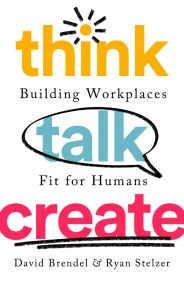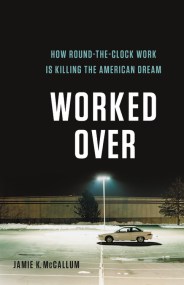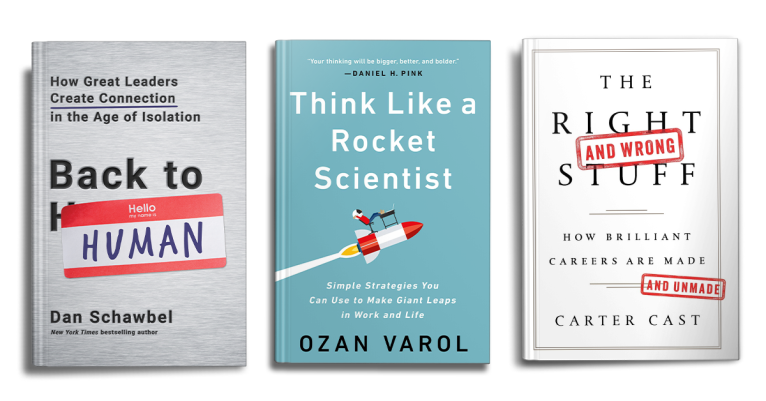12 Books to Transform Your Career
During these uncertain times, a career change can be hard. It’s a big decision that takes thought and meticulous planning and often times getting started can be intimidating. Luckily, you don’t have to navigate this journey alone. These twelve books are the perfect place to start for those looking to land their dream job, level up their management skills and learn what it takes to shift your life into a completely new direction.
Becoming a Changemaker is a radically inclusive playbook for leading positive change. It’s a fresh, inspiring, and research-backed guide to developing the mindsets and leadership skills needed to navigate, shape, and lead change and to thrive amidst uncertainty. Budak is driven by the belief that anyone—regardless of title, personality, race, gender, age, or class—can be a changemaker. Tailored to the millennial/Gen Z set who are exiting school and entering the workforce, this book makes the lessons, insights, examples and excitement from class accessible to all.
In this candid, refreshing guide for young women to take with us as we run the world, Emilie Aries shows you how to own your power, know your worth, and design your career and life accordingly. Drawing from timely research, and with personal stories, and spotlights on a diverse group of women from the Bossed Up community, this book will show you how to craft a happy, healthy, and sustainable career path you’ll love.
The traditional office was probably doomed anyway. Then a global shutdown changed everything we thought we knew about work, including where and when it needed to take place. Automation and the Fourth Industrial Revolution have accelerated, and perhaps as much as one third of the world’s permanent workforce will soon become remote. In The Nowhere Office, Julia Hobsbawm offers a strategic and practical guide to navigating this pivotal moment in the history of work and provides lessons for how both employees and employers can adapt.
Creative Careers pulls from interviews with more than forty experts–notable entrepreneurs, artists, and business leaders–as well as from Madoff’s own decades of experience to supercharge your career. Creativity can often feel sporadic and unfocused, coming in bursts and peaks. That’s why Madoff focuses your professional path by asking vital questions that will ultimately help you.
There is a quiet revolution that is radically reshaping the Muslim world: 50 million women have entered the workforce and are upending their countries’ economies and societies. In Fifty Million Rising, award-winning economist Saadia Zahidi illuminates this discreet but momentous revolution through the stories of the remarkable women who are at the forefront of this shift - These women are challenging familial and social conventions, as well as compelling businesses to cater to women as both workers and consumers. More importantly, they are gaining the economic power that will upend entrenched cultural norms, re-shape how women are viewed in the Muslim world and elsewhere, and change the mindset of the next generation.
A former rocket scientist reveals the habits, ideas, and strategies that will empower you to turn the seemingly impossible into the possible. In this accessible and practical book, Ozan Varol reveals nine simple strategies from rocket science that you can use to make your own giant leaps in work and life — whether it’s landing your dream job, accelerating your business, learning a new skill, or creating the next breakthrough product. Think Like a Rocket Scientist will inspire you to take your own moonshot and enable you to achieve liftoff.
In Diversity, Inc., award-winning journalist Pamela Newkirk shines a bright light on the diversity industry, asking the tough questions about what has been effective—and why progress has been so slow. Newkirk highlights the rare success stories, sharing valuable lessons about how other industries can match those gains. But as she argues, despite decades of handwringing, costly initiatives, and uncomfortable conversations, organizations have, apart from a few exceptions, fallen far short of their goals.
By clicking ‘Sign Up,’ I acknowledge that I have read and agree to Hachette Book Group’s Privacy Policy and Terms of Use
From the CEO and President of the Society for Human Resource Management (SHRM) comes the ultimate book on transforming the way we select, retain and train our employees in a radically changed business environment. Informed by more than 70 years of experience and expertise and propelled by extensive original SHRM research, Reset challenges business leaders’ underlying assumptions about workers and the workplace, delivers practical strategies for finding and keeping the talent needed to make businesses successful, and introduces dynamic tools to sustain that success over the long haul. Now is the time for leaders to completely reimagine, reorganize, and Reset their operations to create a more daring, resilient and sustainable future. This is the book that will guide them exactly when they most need it.
From microaggressions to the wage gap, The Memo empowers women of color with actionable advice on challenges and offers a clear path to success. Drawing on knowledge gained from her past career as a fundraising consultant to top colleges across the country, Harts now brings her powerhouse entrepreneurial experience as CEO of The Memo to the page. With wit and candor, she acknowledges “ugly truths” that keep women of color from having a seat at the table in corporate America. Providing straight talk on how to navigate networking, office politics, and money, while showing how to make real change to the system, The Memo offers support and long-overdue advice on how women of color can succeed in their careers.
A brilliant counter-narrative for restoring humanity to the bottom-line, numbers-obsessed culture of the modern, 21st century workplace. Through moving stories and a modern spin on the ancient framework of Socratic dialogue, David Brendel and Ryan Stelzer show how to move forward and build workplaces fit for humans through what uniquely defines us as human beings: our ability to think, talk, and create. By thinking carefully about a challenge, engaging peers in dialogue via open-ended questioning, and building a strategy collaboratively. Think Talk Create enables us to cultivate trust and define collective values, seemingly “soft” attributes that nonetheless markedly increase innovation and, ultimately, financial performance.
An award-winning sociologist reveals the unexpected link between overwork and inequality. Most Americans work too long and too hard, while others lack consistency in their hours and schedules. Work hours declined for a century through hard-fought labor-movement victories, but they’ve increased significantly since the seventies. Worked Over traces the varied reasons why our lives became tethered to a new rhythm of work, and describes how we might gain a greater say over our labor time — and build a more just society in the process. What’s needed is not individual solutions but collective struggle, and throughout Worked Over McCallum recounts the inspiring stories of those battling today’s capitalism to win back control of their time.
What to Read Next
